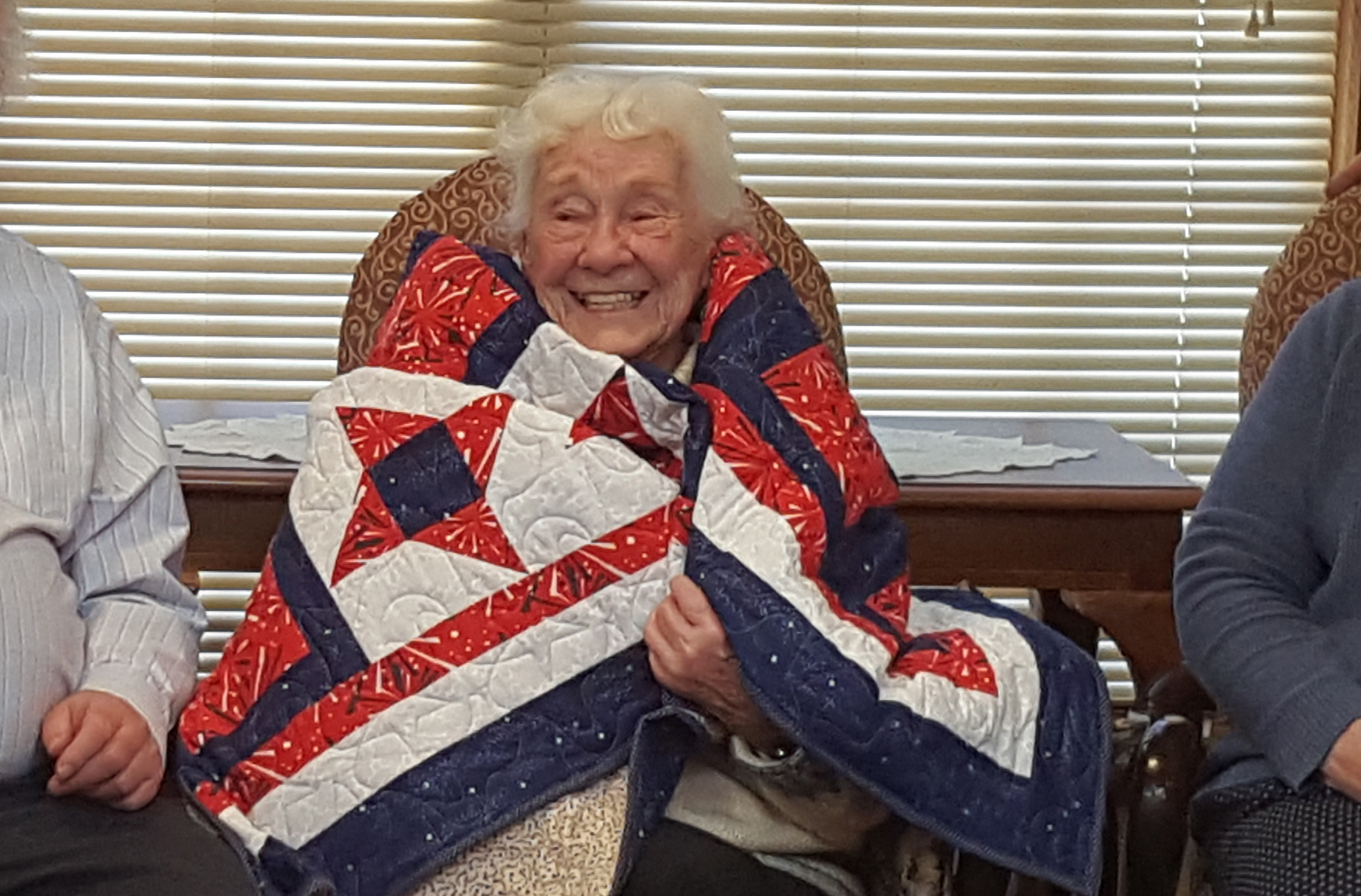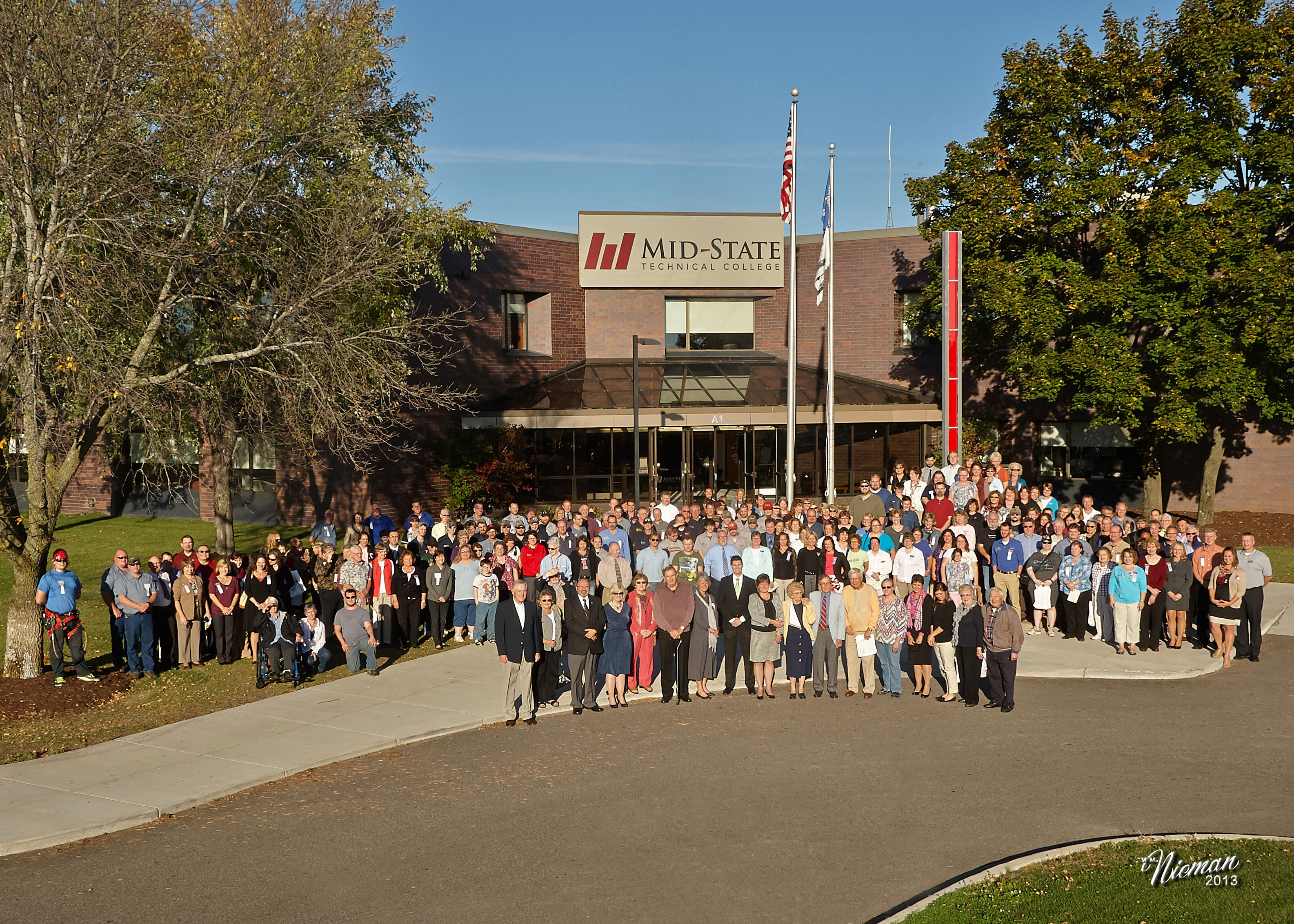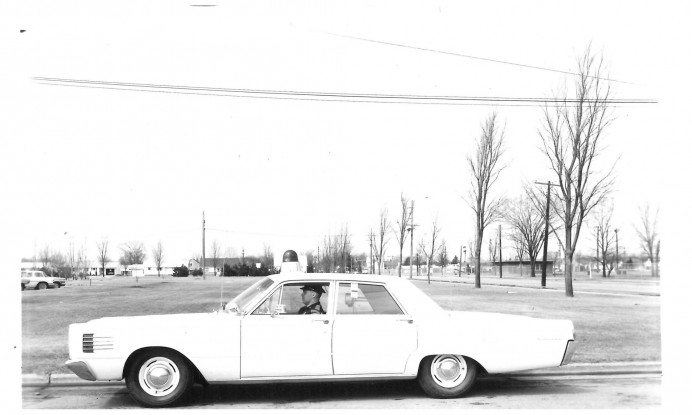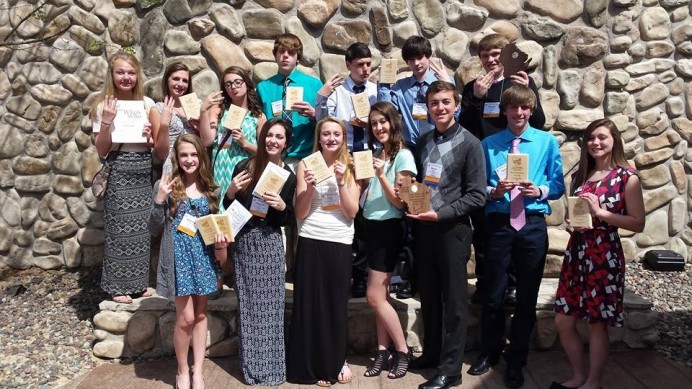Veteran Honored for Paving the Way for Women in the Military

By Joe Bachman
Women in the military have come a long way in America, and if you are currently serving, have served, or know someone who has served, you may want to thank Captain Sara Parsons.
97-year-old Wisconsin Rapids native Sara Parsons was one of the first members of the Women’s Army Corps, (WAC) an auxiliary unit created in May of 1942 during World War II. These military pioneers were trained in weapons maintenance, switchboard operation, mechanics, and much more.
Parsons not only worked her way to a Captain rank, but would help pave the way for women in the army, and was honored with a quilt of valor on Friday afternoon at The Renaissance Center.
“We had a good group of dedicated women that came in,” said Parsons. “Since we were the first, it was very difficult because the majority of the army men didn’t want women in the army — so this was just a crack in the door for women’s freedom.”
A quilt of valor is considered a lifetime award, and each person is only given one for their service. The organization has awarded veterans over 150,000 quilts for their service since 2003.
Parsons’ journey is so unique that at the time, the military did not yet have proper fitting uniforms.
“When you traveled on the train back in ’42, women wore a dress with a veil with white gloves and spiked heels — we got off and the old sergeant said ‘climb up in the truck’ — and this is very difficult to do with spiked heels,” said Parsons. “When we got to Fort Des Moines, we were supposed to have personal WAC uniforms, but they hadn’t arrived, so they gave us the men’s leftover uniforms and most of them were size 48 and larger. — So we’re still wearing spiked heels with these huge uniforms on.”

‘First WAC’ was written by Parsons, detailing her experiences serving in the Women’s Army Corps. (City Times Photo)
Through her army career Parsons would have the honor of escorting First Lady Eleanor Roosevelt around the WAC barracks, as well as dining and dancing with Glenn Miller. Her final station was in Fort Devens, Massachusetts, where she oversaw German POW’s during the war.
“They were not our enemies,” said Parsons. “They were simply young men that were drafted to come and kill our young men, and they didn’t want to do it more than anybody else. We were teaching them English — and they were our friends.”
Parsons would leave the service after the war, but wrote a book about her experiences as a trailblazer for women in the army titled ‘First WAC’. She serves as an inspiration to women in the army to this day, where gender equality has not not been easy to come by.
“Even to this day I think men have a superior position, and this was one step forward for women’s independence.”







